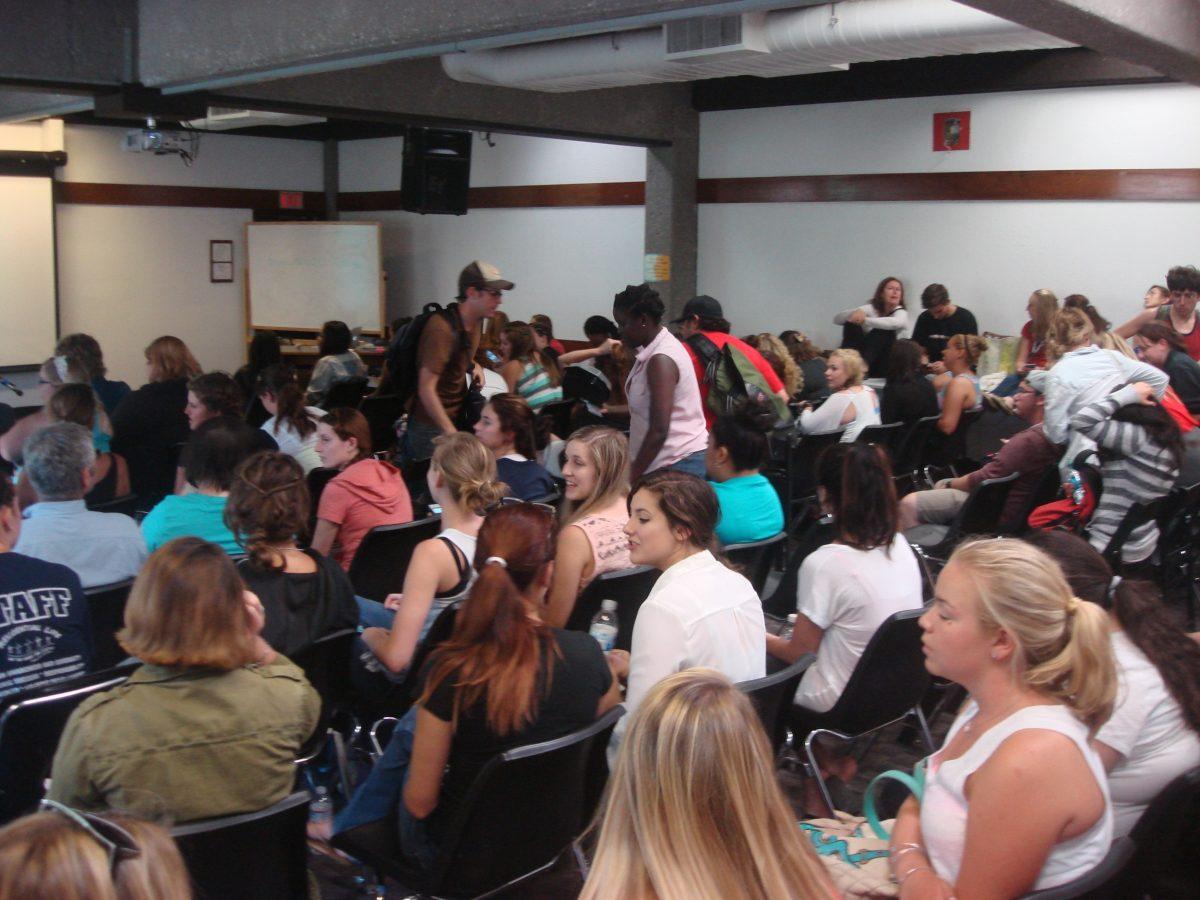Sonoma State University joined the rest of the world in celebrating the 50th anniversary of Martin Luther King Jr.’s famous march on Washington last Wednesday. Political activist and scientist Raquell Holmes spoke to Sonoma State students and community about King’s March on Washington. She discussed what America has gained and lost in the last 50 years regarding political issues, voting rights, poverty and jobs.
Holmes geared this discussion toward the millennial generation. Holmes feels the millennial generation does not have faith that the government will do anything to change society’s problems. Holmes said that the millennials must bring the change themselves, and that the work is not over. The world is still changing and will continue to do so.
Students were engaged through an improvisation exercise, which sparked a discussion about what the concept of movement really is. The goal of the exercise was to create “movement.”
The audience got up and walked around the room and spoke to people they had never met before. The challenge was how to start conversations. The improvisation exercise was asking the audience to take risks.
After the exercise there was a discussion in which many students agreed that once one person starting moving as a model, it was easier to do it themselves. Others vocalized their beliefs and opinions on their definition of movement.
Holmes said she believes there is still room for change.
“Society has not yet completed the task of integrating the black population into mainstream America,” said Holmes.
Sonoma State student Tommaso Carli also believes there is still room for change. He does not think society has done a good job following King’s footsteps.
“Even now, obtaining equality for any minority group is a struggle,” said Carli. “Minorities are underrepresented in politics, and the amount of money that older white Christians pour into politics keeps it this way.”
Holmes also discussed the connection to the black community and poverty 50 years ago, which was one of the reasons that sparked this historic march.
The march was an effort that brought together multiracial groups concerned with issues like jobs, voting rights and poverty.
Holmes said she feels there is a need to create more organizational opportunities for poor environments. She spoke about a program called All Stars, which serves 10,000 kids every year. All Stars targets young black children growing up in poor communities. The purpose of this organization is for kids to do something they love.
All Stars gives these kids opportunities that they would normally not have access to.
On a national note, President Barack Obama delivered a speech at the Lincoln Memorial appreciating King’s work on the same day.
“And because they kept marching, America changed,” said Obama.
“Because they marched, the civil rights law was passed. Because they marched, the voting rights law was signed. Because they marched, doors of opportunity and education swung open so their daughters and sons could finally imagine a life for themselves beyond washing somebody else’s laundry or shining somebody else’s shoes. Because they marched, city councils changed and state legislatures changed and Congress changed and, yes, eventually the White House changed.”
Obama reminded the country of all the change King brought to the world. He spoke about King and his followers’ determination to change the world through a nonviolent manner regardless of all the hatred surrounding them.
Back at SSU, Holmes left the audience encouraged to go change the world in a creative manner.
She left the audience mulling over the question, “What do you want to create that will change poverty and politics?”



































